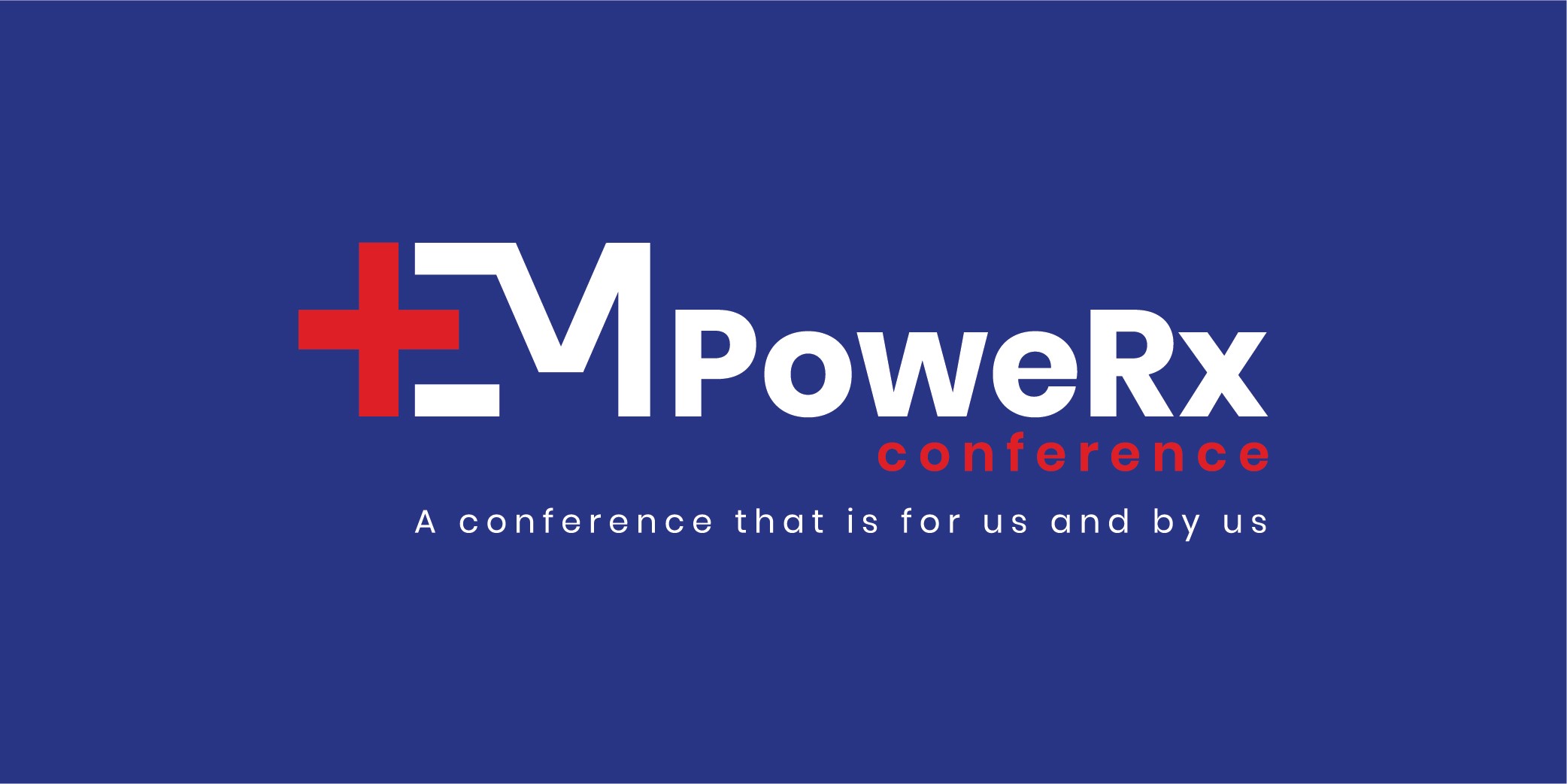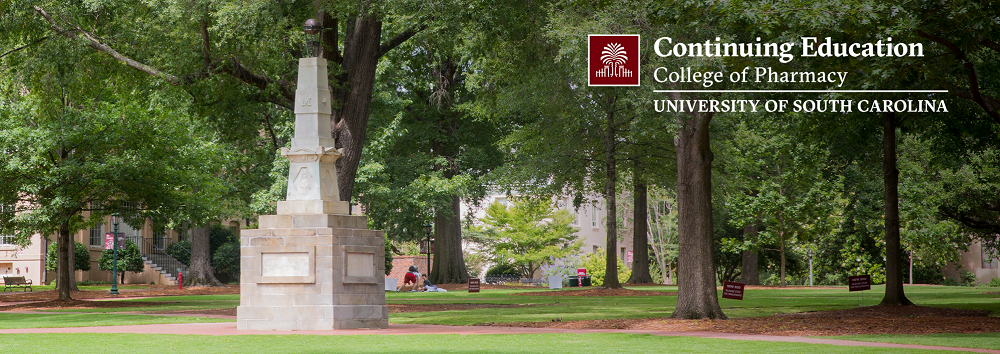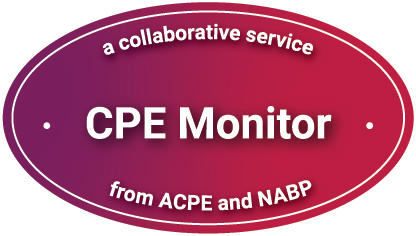
Date: Mar 11, 2022 01:00 PM - Mar 12, 2022 06:00 PM
CE Hours
CE Units
Activity Type
- Knowledge
Target Audience(s)
- Pharmacists
Accreditation(s)

|
The University of South Carolina College of Pharmacy is accredited by the Accreditation Council for Pharmacy Education as a provider of continuing pharmacy education.
|
Co-Sponsor(s)
Requirements for CE Credit
- Recognize different etiologies and forms of ventricular tachycardia (VT)
- Analyze different pharmacological options for treating VT
Speaker(s)/Author(s)
|
Lance Ray, PharmD, BCPS
|
Activity Number
0062-9999-22-049-L01-PCE Hours
- Review current guideline recommendations for the treatment of paroxysmal supraventricular tachycardia (pSVT)
- Recognize why adenosine may no longer be the only first-line pharmacologic therapy
- Appraise the current available evidence for calcium channel blockers (CCB) in pSVT
- Discuss scenarios when not to use either agent
Speaker(s)/Author(s)
|
Nicholas Servati, PharmD, BCCP
|
Activity Number
0062-9999-22-050-L01-PCE Hours
- Summarize the value of a local emergency department antibiogram
- Recognize potential short falls of select antibiotics, and assess potential alternatives for community acquired pneumonia, urinary tract infections, and skin and soft tissue infections
- Recognize opportunities to shorten antibiotic therapy duration for select infectious processes
Speaker(s)/Author(s)
|
Mark Anthony Mixon, PharmD, BCPS, BCIDP, BCCCP
|
Activity Number
0062-9999-22-051-L01-PCE Hours
- Discuss coagulation and risk factors for coagulopathy
- Describe the use of viscoelastic tests in critically ill emergency department (ED) patients
Speaker(s)/Author(s)
|
Megan A Rech, PharmD, MS, BCCCP, FCCM
|
Activity Number
0062-9999-22-052-L01-PCE Hours
- Assess systemic fibrinolytic strategies for acute ischemic stroke
- Compare pharmacologic differences between alteplase and tenecteplase
- Evaluate literature supporting current guideline recommendations for both alteplase and tenecteplase
Speaker(s)/Author(s)
|
James Priano, PharmD, BCPS
|
Activity Number
0062-9999-22-053-L01-PCE Hours
- Discuss the epidemiology, pathophysiology, and risk stratification of pulmonary embolisms (PE)
- Review bedside tools and strategies used to narrow the presentation differential
- Examine treatment options for the management of massive PE
Speaker(s)/Author(s)
|
Terren Trott, MD
|
Activity Number
0062-9999-22-054-L01-PCE Hours
- Describe the important differences between antivenom products
- Debate whether Copperheads should be considered in a different category to other pit vipers for the purposes of antivenom treatment and outcome measurement
- Critique the definition of "initial control"
Speaker(s)/Author(s)
|
Craig Cocchio, PharmD, BCPS, DABAT
|
Activity Number
0062-9999-22-055-L01-PCE Hours
- Explain the rationale for the original intravenous NAC dosing regimen in the UK, the original oral regimen using the FDA approved inhalational product in the US and current practices utilizing varying routes, numbers of intravenous bags or doses or dosing rates
- Outline risk factors not yet considered in these regimens that may explain and or be used to modify the regimen in an individualized patient at initiation or during therapy
- Justify an individualized regimen choice from current practices on the basis of location, supply, patient prognosis, risk factors and patient response
Speaker(s)/Author(s)
|
Frank P. Paloucek, Pharm.D. FASHP, FAACT, DPLA, DABAT
|
Activity Number
0062-9999-22-056-L01-PCE Hours
- Discuss the key differences in using lipoglycopeptides compared to traditional therapies for acute bacterial skin and skin structure infections (ABSSSI)
- Determine the clinical and financial impacts of using a lipoglycopeptide protocol in the Emergency Department
Speaker(s)/Author(s)
|
Abby M. Bailey, PharmD, BCCCP
|
Activity Number
0062-9999-22-057-L01-PCE Hours
- Describe the pathological processes underlying the formation of cerebral edema
- Compare the available literature supporting the use of hypertonic saline and mannitol in the management of cerebral edema
- Identify important considerations for implementing osmotherapy in the emergency department
Speaker(s)/Author(s)
|
Kyle Weant, PharmD, BCPS, BCCCP, BCEMP, FCCP
|
Activity Number
0062-9999-22-058-L01-PCE Hours
- Identify non-opioid analgesic modalities available in the Emergency Department (ED)
- Evaluate advantages and disadvantages of commonly used non-opioid therapies in the ED based on the up-to-date evidence
Speaker(s)/Author(s)
|
Sergey M. Motov, MD FAAEM
|
Activity Number
0062-9999-22-059-L08-PCE Hours
- Describe buprenorphine induction strategies in the Emergency Department (ED)
- Summarize monitoring and dose titration of buprenorphine
- Discuss transitions of care for the patients initiated on buprenorphine in the ED
Speaker(s)/Author(s)
|
David E. Zimmerman, PharmD, BCCCP
|
Activity Number
0062-9999-22-060-L08-PCE Hours
- Review the etiology and pathophysiology of trauma induced coagulopathy
- Recall the pharmacology of tranexamic acid (TXA)
- Analyze the literature regarding the use of TXA in trauma patients
Speaker(s)/Author(s)
|
Ruben Santiago, PharmD
|
Activity Number
0062-9999-22-061-L01-PCE Hours
- Review pathophysiology and assessment of acute alcohol withdrawal syndrome
- Discuss the pharmacology and pharmacokinetics of common medications used in alcohol withdrawal
- Analyze the clinical literature regarding management of alcohol withdrawal using phenobarbital
Speaker(s)/Author(s)
|
Jimmy L. Pruitt III, PharmD, BCPS
|
Activity Number
0062-9999-22-062-L01-PCE Hours
- Interpret practical laboratory values helpful for evaluating the degree of anticoagulation in the acute care setting
- Describe the clinical pharmacology of available anticoagulants and reversal agents
- Evaluate potential agents and strategies for reversal of anticoagulants including warfarin, direct thrombin inhibitors, and direct factor Xa inhibitors
Speaker(s)/Author(s)
|
Bryan D. Hayes, PharmD, DABAT, FAACT, FASHP
|
Activity Number
0062-9999-22-063-L01-PCE Hours
- Describe the main causes of acute agitation in the Emergency Department (ED)
- Discuss the various treatment options for the acutely agitated patient in ED
- Describe the onset of action and adverse effects of the chemical sedatives used for acute agitation
Speaker(s)/Author(s)
|
Amy Thomson, MSHP
|

